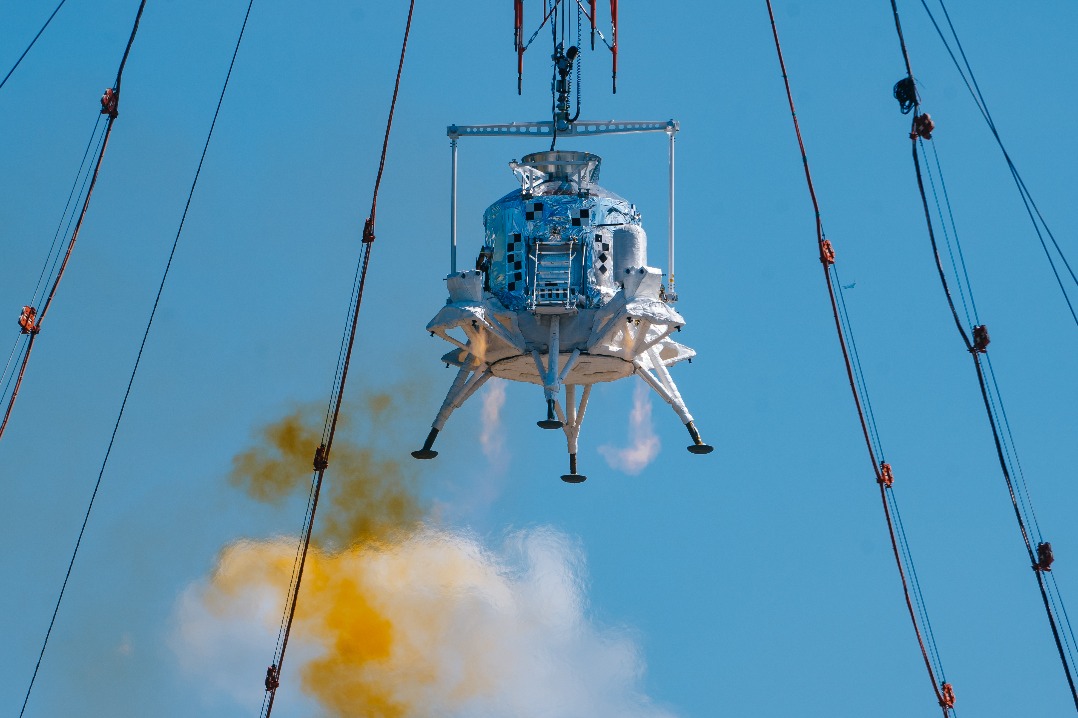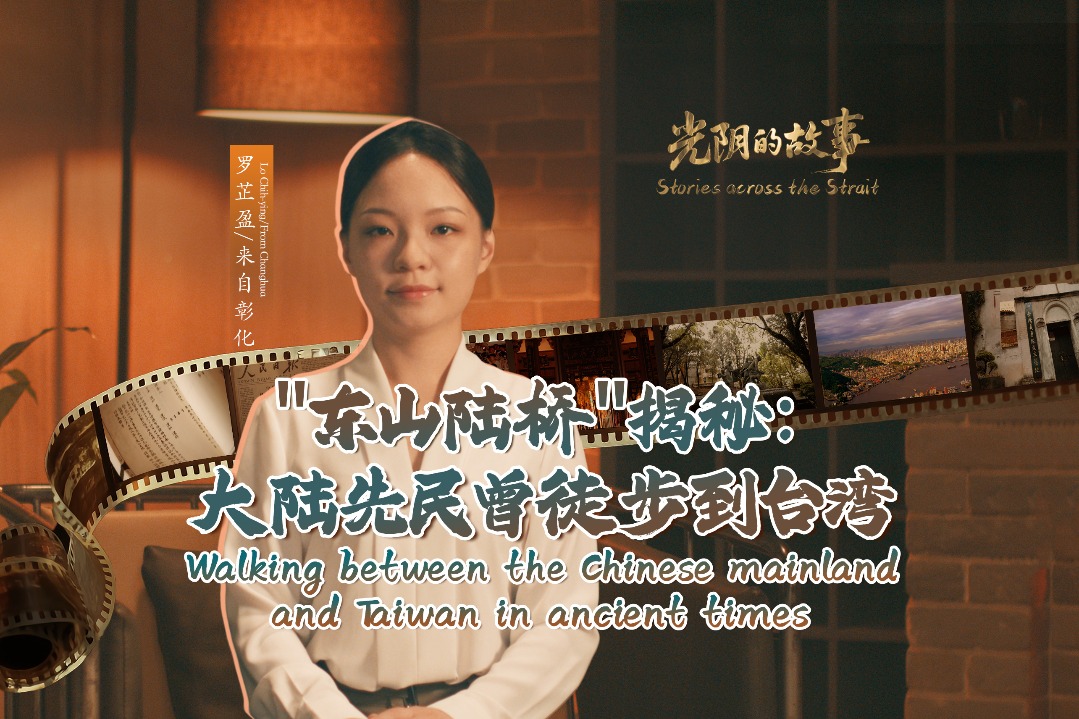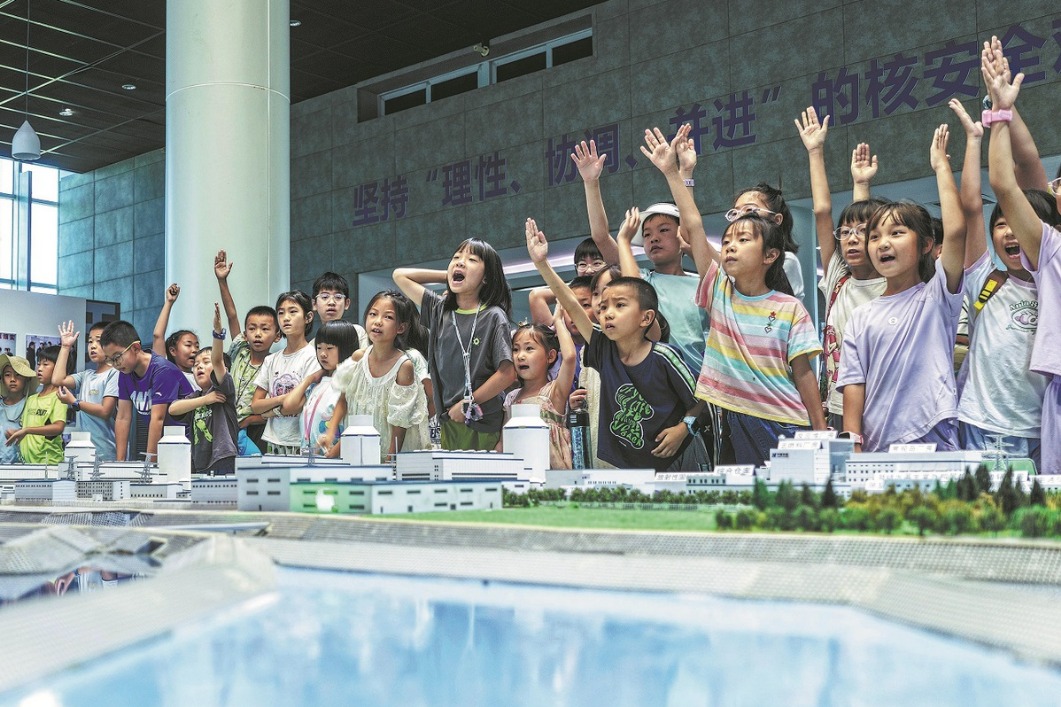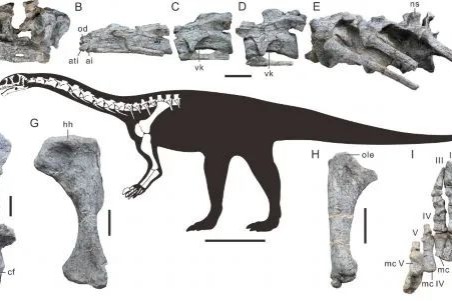Cave police station is a mine of excellence
Officers working at an isolated nature park endure heat and dust to perform their duties. Zhao Xinying reports.

If not for the blue name boards hanging outside the door, passersby would never imagine that a small cave dwelling in the Dunhuang Yardang National Geopark, Gansu province, is a police station.
China's only police facility located in a cave is home to Li Shengshou, the station head, and 11 officers. Usually, they are the only people working and living within a radius of 100 kilometers.
The station is located in the hinterland of the Kumtag Desert, which connects western Gansu and the southeastern part of the Xinjiang Uygur autonomous region. It also lies at the edge of Lop Nor, a largely dried-up salt lake in southeastern Xinjiang. The nearest residential area is Dunhuang, a city about 160 km away.
Every five days, Li and his colleagues take turns to go to their homes in downtown Dunhuang.
They take a two-day break before returning to work at the station. The round trip takes almost half a day, but they still enjoy the journey as they are needed at both ends-by tourists in the park and by their families at home.
From a tent to a cave
When the station was established by the Dunhuang public security bureau in 1999, the location was even more distant-300 km from Dunhuang-than it is nowadays. Li, who was 37 at the time, was appointed station head.
As a Dunhuang native, he had heard about the difficult conditions in the place where he was going to work, but the reality was even worse than he had imagined.
He and his four colleagues had to work and live in tents as there were no other shelters in the desert; there was no electricity or tap water either, so the officers had to use a single kerosene lamp, and they had to transport salty water 150 km and store it in a cellar.
Meanwhile, the road to Dunhuang was rocky, making it difficult for Li and his peers to travel back and forth to their homes.
Even now, the biggest challenges come from the extreme weather, Li said. In summer, the air temperature can reach 45 C, and the land temperature can rise to 70 C-hot enough to boil eggs. In winter, which lasts several months, the temperature usually falls to -25 C or lower.
"There are no birds in the sky and the wind blows all year round, carrying sand and stones," he said. "It is really like living on an isolated island."
In 2001, to improve their living and working conditions, Li and his colleagues decided to build an office by digging a cave in one of the small hills at the park's entrance.
The lack of electricity and other power sources meant they had to use hand tools, but after working for almost a year, they eventually had a 40-square-meter cave dwelling-the original version of today's police station.
Though the place was still shabby, everyone was content and excited, as "we finally had a 'home' in the isolated area", Li said.
There were two reasons for digging a cave as a place to work and live: the officers had no construction materials, such as bricks, concrete, iron or cement, to build houses because the poor road conditions at the time made it difficult to transport materials to the park; moreover, a cavelike structure was more suitable and comfortable, given the local climate.
"The cave dwelling not only keeps us warm in winter and cool in summer, but also has a good dampening effect on external noise. That is a great advantage as the night wind in the park sounds like the wailing of ghosts and the howling of wolves," Li said.
He added that the officers could barely hear the unnerving sounds after they moved into the cave.
In the following 15 years, the cave underwent three renovation and reconstruction programs, finally turning it into today's 260-square-meter structure. Now, it has better working and living facilities-such as electricity and running water-that cater to the daily needs of the station's 12 staff members.
Saving lives
Every day after lunch, the officers start patrols of the desert in groups of three, covering the area between the station and the Yumen Pass, a relic dating back to the Western Han Dynasty (206 BC-AD 24), located 70 km away.
The geopark has been dubbed a "ghost city", because the unique landform produces such creepy wind sounds at night, while a strong magnetic field makes it impossible for compasses to work normally.
Despite that, it's a paradise for people who enjoy adventure holidays, and it is visited by about 5,000 hardy tourists and explorers every year. As such, one of the daily routines for Li and his colleagues is searching for and rescuing people who have lost contact and run into danger, as well as locating vehicles that have broken down.
During the past two decades, Li has overseen more than 200 related operations that have saved 21 lives. He and his colleagues are fully aware of the places where the sand is soft and dangerous, and all the spots where people tend to get lost.
One of the operations that made a lasting impression on Li came in June 1999, when a retired man rode a motorcycle from Jiayuguan-a city in Gansu 500 km away-to the park and planned to continue on to Lop Nor.
"I met him during my patrol. He asked me for directions. I tried to dissuade him from traveling alone, but he insisted," Li recalled.
A few days later, when sandstorms swept the area around the park, the man's family called the station for help because they had lost contact with him.
Li and his colleagues drove around and searched for the man in the vast area between Lop Nor and the park. Eventually, they found him hunkered down in a low-lying place. His vital signs were very weak, so the officers immediately performed artificial respiration and cardiopulmonary resuscitation, which saved his life.
A month later, the man returned to the police station. This time, he drove a pickup truck laden with bottled water and barrels of instant noodles, as well as 10,000 yuan in cash. He said he was not there for an expedition, but to express his gratitude to the officers.
Li and his colleagues kept the bottles, because drinking water is scarce in the desert, but they declined the other gifts, saying that it is the duty of the police to help those in danger.
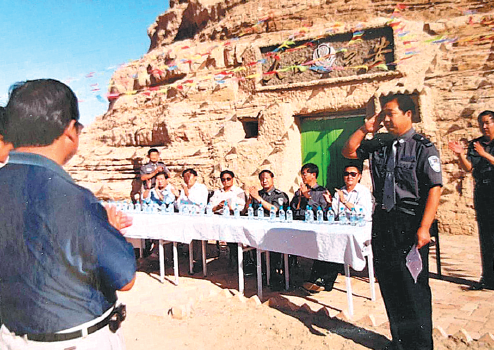
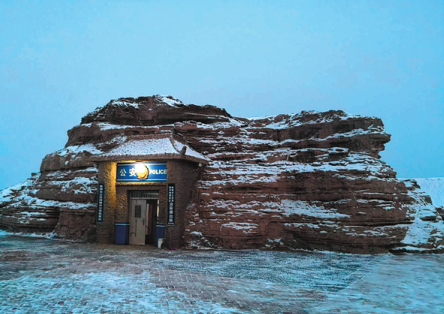
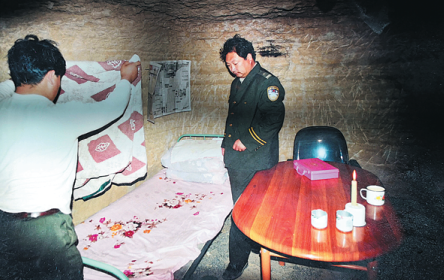
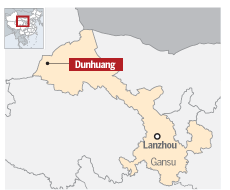
Today's Top News
- China completes first landing, takeoff test of manned lunar lander
- China's new free preschool policy to save families $2.8 billion
- China's foreign trade rises 3.5% in first seven months
- China's foreign trade up 3.5% in first seven months
- 25-yuan roast duck reflects progress of rural vitalization
- Xi set stage for rise of cultural powerhouse
















